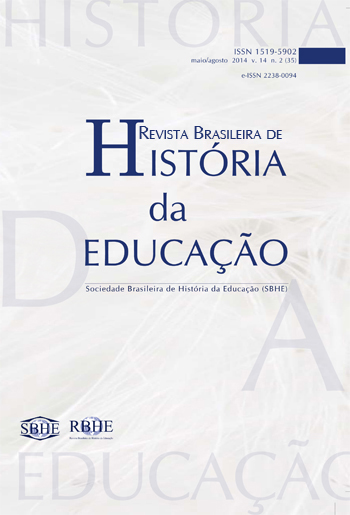G. Stanley Hall and the child study: United States between the late nineteenth Century and the early Twentieth century
Abstract
This article focuses the child study between the late nineteenth
century and the first decade of the twentieth century in the United
States. A prominent figure is G. Stanley Hall who led the
movement both in its broader context, including school teachers,
kindergarteners and parents, as in the strict sense of creating a
field of study for which disciplines would converge to the study of
children and adolescents in their different dimensions. Earlier, the
institutional epicenter of child study was Clark University whose
President was Hall; Pedagogical Seminary was its main organ. In
addition to examining the specific child study led by Hall, this
article also discusses the process of hegemony of psychology on
the other disciplines in child studies.
Downloads
Os direitos autorais pertencem exclusivamente aos autores. Os direitos de licenciamento utilizados pelo periódico consistem na licença Creative Commons Attribution 4.0 (CC BY 4.0): são permitidos o acompartilhamento (cópia e distribuição do material em qualqer meio ou formato) e adaptação (remix, transformação e criação de material a partir do conteúdo assim licenciado) para quaisquer fins, inclusive comerciais.
Recomenda-se a leitura desse link para maiores informações sobre o tema: fornecimento de créditos e referências de forma correta, entre outros detalhes cruciais para uso adequado do material licenciado.













